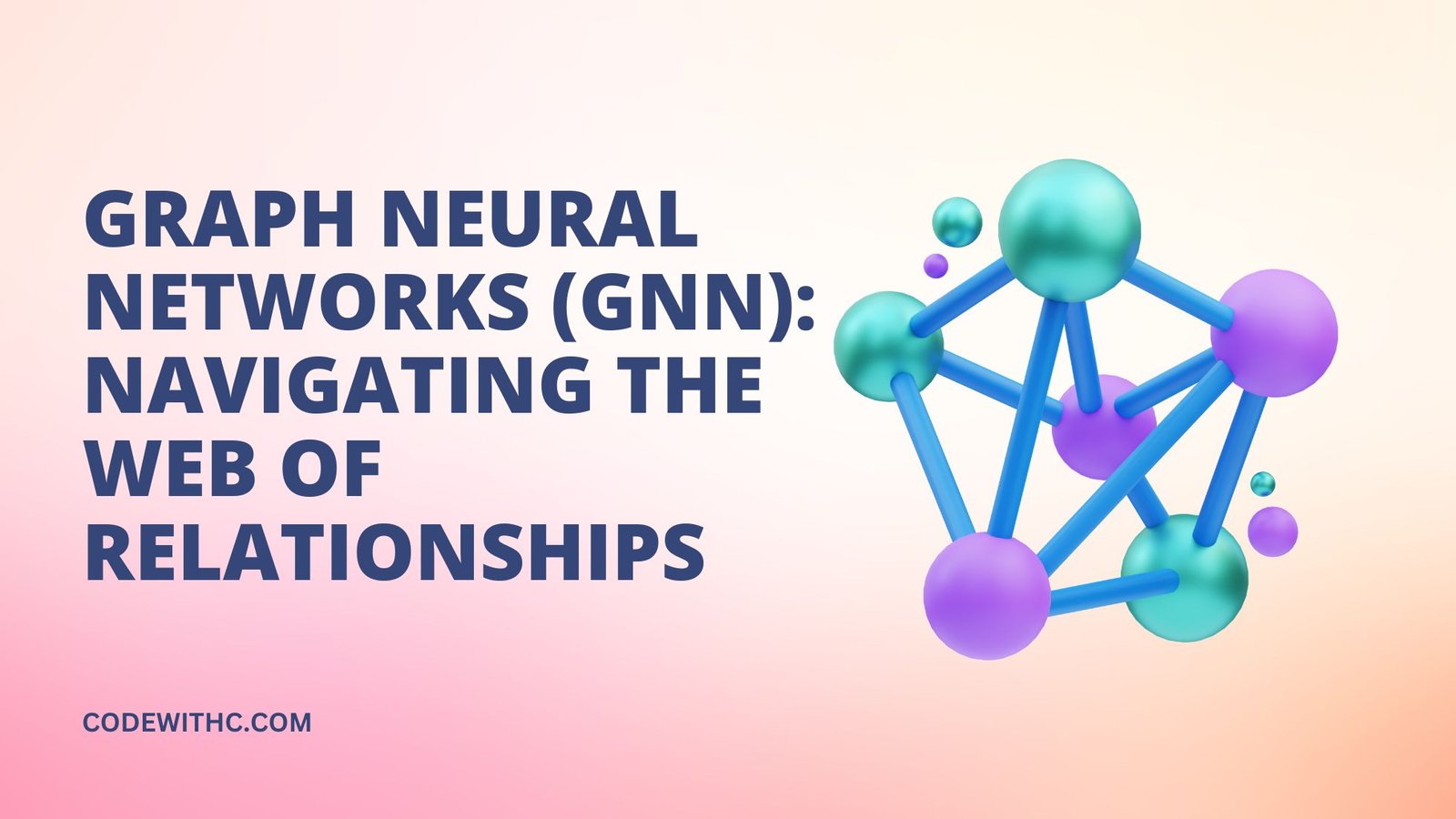Graph Neural Networks (GNN): Navigating the Web of Relationships
Picture a room filled with coding enthusiasts, all amped up on caffeine and ambition. The atmosphere’s electric, like you can almost smell the lines of code in the air. Priya and I are tucked into a corner, our laptops practically steaming from the hours of non-stop coding. The walls are covered in scribbles of algorithms and data models. You’d think we were trying to crack some secret code or something. So, Priya starts talking about social networks and says, “What if we bring in Graph Neural Networks?” My eyes lit up; it was like a scene from a movie where the protagonist finds the missing piece of the puzzle. I knew right there that GNNs were our golden ticket, but man, little did I know how complex yet fascinating this journey would be. It’s been weeks since that hackathon, and I’m still lost in the intricate world of GNNs, and guess what? I’m dragging you in with me! ?
Intro Graph Neural Networks (GNN): A Lightbulb Moment
So I was at this hackathon last month, right? My team and I were crunching away on our laptops, the room buzzing with the sound of keystrokes and the faint aroma of energy drinks. My teammate, Priya, pitched an idea about using Graph Neural Networks (GNNs) for our project on social network analysis. I was like, “GNNs? Are those like CNNs but for graphs?” And boom! My curiosity was ignited. I dove into research, started crunching code, and here we are, about to untangle the web of GNNs.
Why Graph Neural Networks (GNN)?
Here’s the deal. Traditional neural networks are cool for structured data, but life ain’t always that neat. What about relationships, connections, and networks? Enter GNNs. These bad boys are designed to work with graph-structured data.
The Game-Changer: Node Embeddings
Imagine trying to represent each person in a social network. Tough, right? But with node embeddings, you can represent complex attributes in a digestible form.
The Heart of GNNs: Propagation Rules
This is where the magic happens. GNNs use propagation rules to pass information through the graph. Think of it like a game of telephone but way more accurate.
def propagate(nodes, edges):
for node in nodes:
neighbors = edges[node]
# ... information propagation logic here
Code Breakdown
In this Python code snippet, nodes are the individual elements in the graph, and edges define the relationships between them. The function propagate is a simplified example of how GNNs propagate information.
What to Expect
Run this, and you’ll start seeing your graph come alive, as each node updates based on its neighbors.
Challenges and Pitfalls
Ah, the roadblocks. GNNs can be computationally expensive and super sensitive to hyperparameters. A tiny misstep, and you’re looking at skewed results. Been there, done that!
Beyond Social Networks
Don’t box GNNs into just social media analysis. These networks are versatile — from drug discovery to recommendation systems, they’re making waves.
Closing: The Takeaway
Phew, what a ride, huh? We’ve navigated through the twisted lanes of Graph Neural Networks, touched upon their potential, and even looked at some of the bumps in the road. It’s been a crazy journey, to say the least. And if I’m being totally transparent, diving into GNNs was a bit intimidating at first. All those nodes, edges, and hyperparameters felt like a maze with no end. But, you know what they say, “If it doesn’t challenge you, it won’t change you.” And change, my friends, is the only constant in this ever-evolving tech landscape.
So, what’s next for you? Planning to implement a GNN in your next project or just marinating on the info for now? Whatever you choose, don’t be a stranger! Share your “aha moments” or the “oh no, what did I do?” scenarios. Trust me; we’ve all been there.
In closing, if you’ve read this far, you’re not just a visitor; you’re a part of this nerdy little community we’re building. So, let’s keep the momentum going, shall we? Keep an eye out for my next post; I’ve got some more juicy topics up my sleeve. ?
